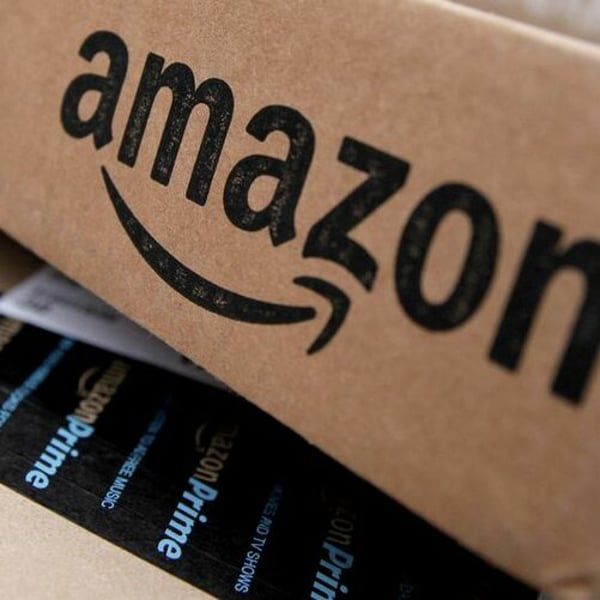By
Reuters
Published
July 2, 2024
Amazon has become the first company to bypass a global standard for verifying carbon offsets that was developed by a nonprofit largely funded by the tech giant's founder and chief executive, Jeff Bezos.
Amazon is backing the development of a new standard that could allow the online retailer and cloud computing provider to overcome a supply shortage of quality-labeled offsets, enabling it to meet its goal of reducing its greenhouse gas emissions to net zero by 2040. Critics fear the move could lead to market confusion and a compromise on carbon offset standards.
Companies under pressure to reduce their emissions can buy credits from developers of projects that absorb carbon, for example through reforestation. The offset market has remained small due to a limited number of projects that can demonstrate their climate benefits.
Amazon told Reuters it has completed work on Abacus, a framework for verifying the quality of carbon offsets in reforestation and agroforestry. Amazon developed the standard with the Verra carbon registry as an alternative to one developed by the Integrity Council for the Voluntary Carbon Market (ICVCM), the world’s largest grouping of private sector and environmental groups dedicated to validating carbon offsets. Verra first announced it was developing the label with Amazon and its Abacus working group in 2022.
Bezos, through his $10 billion Earth Fund that he created to address climate change, is one of ICVCM’s largest donors, having invested at least $11 million in ICVCM and its sister organization Voluntary Carbon Markets Integrity Initiative since their launch in 2021.
Jamey Mulligan, Amazon’s head of carbon neutrality, said in an interview that the company had evaluated and supported ICVCM’s work but wanted a more ambitious standard.
“We want to make sure that every credit investment has a real, quantified and conservatively verified impact on emissions,” said Mulligan, who declined to comment on whether Bezos was involved in Amazon's decision.
Bezos could not be reached for comment.
Alphabetopen a new tabMeta, Microsoft and Salesforce have said they plan to purchase up to 20 million metric tons of Abacus-certified credits.
Pedro Martins Barata, co-chair of the ICVCM expert panel, said he was concerned about the development of an alternative standard and hoped Abacus would eventually be incorporated into the ICVCM.
“Otherwise, you get back into a state of confusion in the market where each group of companies will find their own standards that they want to support and they will say they are a particular type of quality,” he said.
Martins Barata added that ICVCM was reviewing Verra's methodology for developing carbon offsets for agroforestry and reforestation projects, and that if approved this could make the Abacus label compatible with the ICVCM label.
Kelley Kizzier, director of corporate equities and markets at the Bezos Earth Fund and a member of ICVCM’s board, said Abacus is a complement to ICVCM, rather than a competitor. She also declined to comment on Bezos’ role.
“What we need to do is focus on generating high-integrity trade-offs. There is scope for many actors to do that,” Kizzier said.
The label will be available within a few weeks, Verra said.
The $2 billion market for voluntary carbon offsets has remained small amid concerns from companies and investors that the underlying projects may not reduce as many emissions as they claim.
According to an analysis of data from financial information provider MSCI by the Environmental Defense Fund, the market offsets 300 million metric tons of emissions annually. However, only a fraction of those offsets are verified: ICVCM’s main quality label, CCP, accounts for 27 million tons.
“My main concern with the strategy remains the idea that buying these credits somehow 'neutralises' Amazon's impact. I don't think that's the case,” said Gilles Dufrasne, a policy officer at the environmental nonprofit Carbon Market Watch.
Deborah Lawrence, chief scientist at credit rating firm Calyx Global, welcomed the label's requirement to make public data on how much carbon projects store, but said she still had concerns about Abacus' ability to ensure carbon removals are permanent.
“Their standing requires further investigation,” he said. “The way it is worded gives us pause, but their annual monitoring and publication of results are great ideas and raise the bar.”
Amazon generated 71.3 million tons of carbon dioxide equivalent emissions in 2022, according to its latest sustainability report, of which 54.98 million tons came from its supply chain.
Projects will take two to three years to obtain the Abacus label because many rely on tree growth and developers then demonstrating how much carbon they absorb.
Mulligan said Amazon could become one of the largest buyers of carbon credits, but would not use them in lieu of the company's efforts to decarbonize its business.
He added that Amazon is currently reviewing more than 70 proposals from developers and hopes to restore tens of thousands of hectares of degraded land.
Any developer can apply for the Abacus label as long as they meet the requirements of the Verra methodology, which the Abacus working group, a team of scientists, non-governmental organizations and industry specialists, helped develop.
Eron Bloomgarden, founder of Emergent, a nonprofit that mobilizes private sector funding for forest countries, said Abacus would help grow the carbon offset market.
“The work of the ICVCM is important but it is insufficient for market growth, because what we are trying to do is solve major existential challenges such as climate change and the extinction of biodiversity,” he said.
© Thomson Reuters 2024 All rights reserved.












